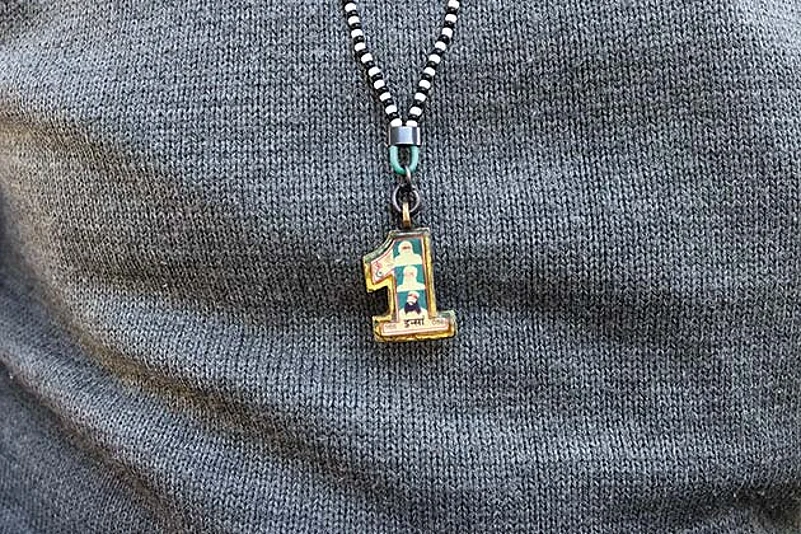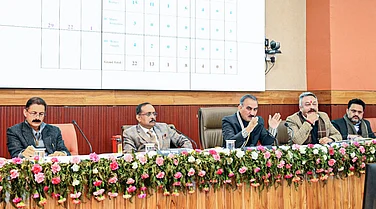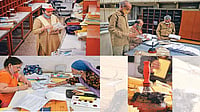The year was 2013. Chinder Kaur, now 60, had just solemnised the marriage of her elder son, Raj Bir Singh, and it’s time for the last formalities. But there was a twist in the tale. Contrary to the Indian tradition of the bride going to her in-laws’ home, it was Raj Bir who was sent off to his bride’s home in Panipat.
The wedding made the headlines as it was the first such publicised case, part of a programme launched by the Dera Sacha Sauda, a socio-religious sect led by Gurmeet Ram Rahim Singh ji Insaan, a controversial self-styled guru. Gurmeet Singh is now serving two simultaneous jail terms—life sentence for murder and 20 years for raping two women ‘disciples’. Known for his flashy clothes and even flashier, over-the-top movies that had him in the lead role, Gurmeet Singh is also accused of mass castration of his male followers and other such controversial practices.
Kaur and her children, however, are still bound by the “rules” set down by Gurmeet Singh, who had asked people with two or more sons to marry one of them to a family with a single girl child. Her younger son, a government school teacher who doesn’t want to be named, is to the point. “This is progressive thinking. And if people associated with such thinking guide you who to vote for, it’s absolutely right to follow them.”
It’s election time again and the spotlight has swung back to the Dera’s 50 million-odd followers in Haryana, Punjab, Rajasthan, parts of Himachal Pradesh and Uttar Pradesh. Most of the Dera’s leadership, including Gurmeet Singh’s close aide Honeypreet Singh, are either in jail or on the run. And this has put the followers in a bind as they don’t know who to turn to for advice on voting a party/candidate this election. Over the years, the seven-decade-old Dera had backed a party or candidate. Several Dera followers Outlook spoke to say they could decide on voting the party that promises to get their guru released from jail.
The Dera gained political importance around 2007 when its follower base started increasing substantially, coupled with increase in donations and charity. In 2007, the Dera formed a political affairs wing with the responsibility to decide which political party or politician to support. During the Punjab assembly elections in February 2007, the Dera supported the Congress and helped defeat the Shiromani Akali Dal (SAD) in the Malwa region. The Congress lost the elections, though.
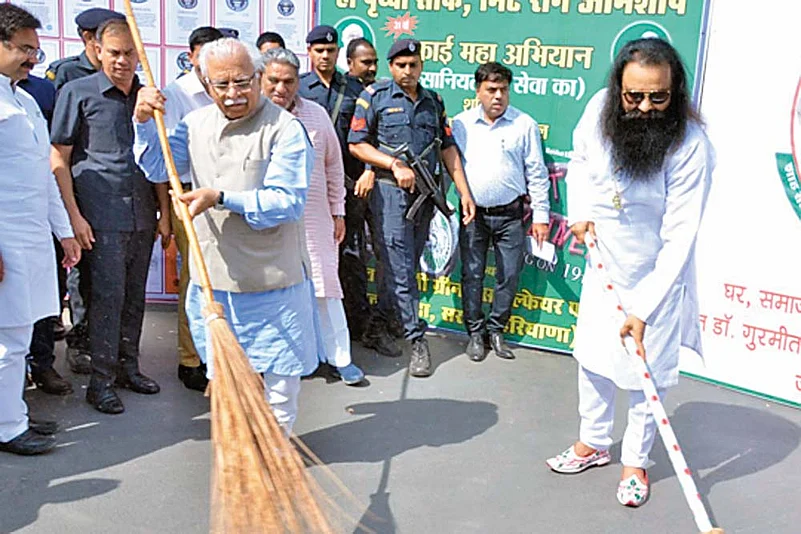
Gurmeet Singh always insisted his group was apolitical, but a series of events since 2014 left no room for ambiguity. Just before the 2014 Haryana assembly elections, BJP leader Kailash Vijayvargiya accompanied 44 candidates to the Dera chief to seek his blessings. Later, Rahim was seen holding a broom with Haryana chief minister Mahonar Lal Khattar for an event under the Swachh Bharat Abhiyaan in Karnal. In August 2017, few months before his conviction, the Dera chief was seen with Union minister V.K. Singh and Delhi BJP chief Manoj Tiwari kicking off the Clean Delhi campaign at India Gate. While BJP chief Amit Shah had a one-to-one meeting with Gurmeet Singh once, Prime Minister Narendra Modi had, in a tweet, lauded the Dera chief for his cleanliness campaign.
Singh’s followers defend their guru. “Our guru never tells us whom to vote for. It’s the political affairs wing which takes the call and we abide by it. No one forces us,” says Chinder Kaur. This time, no one’s sure if the political wing is active at all after Singh’s conviction. At the Dera’s sprawling headquarters in Sirsa, from where Gurmeet Singh ran his Rs 1,600-crore empire, kirtans are still held every evening under the guidance of his mother Naseeb. Security is as tight as ever, with guards frisking everybody entering the premises of the secretive cult. But despite the show of normality, the Dera’s activities are visibly down.
A former member of the political wing, who spoke to Outlook on condition of anonymity, says the Dera’s political movement is almost dead. “The wing comprised of around 10-15 people...although the final call was taken by the Dera chief. The decision is communicated to followers just 3-5 days before voting.”
“We have lost trust on media and politicians. Let the trial go on, but we have our trust that our guru will be back,” says Vinod Kumar, 30, of Nezia Khera village in Sirsa. He reiterates the general mood that if the Dera leadership doesn’t give its choice then the followers may vote the party promising their chief’s release.
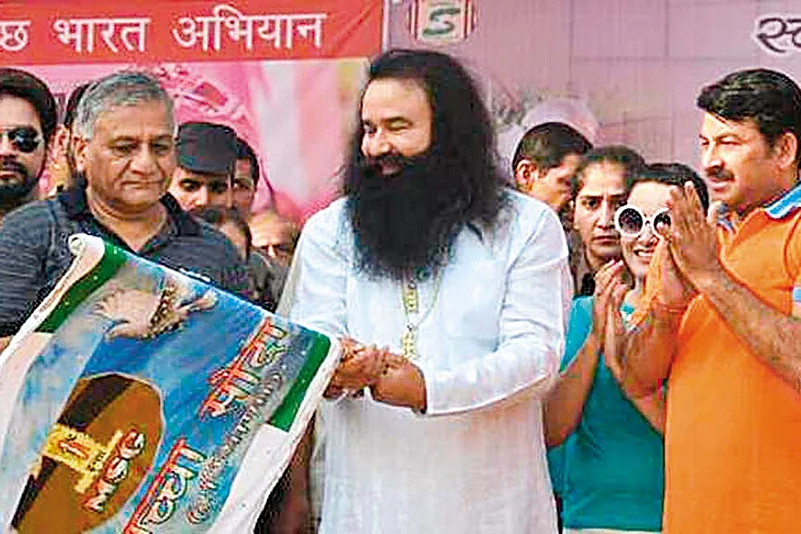
Dera’s followers can swing the fortune of candidates in at least three Lok Sabha seat in Haryana. In the 2014 general elections, the INLD won the Sirsa seat. The party also bagged five assembly seats in subsequent state polls. Since then, the INLD has split and Hisar MP Dushyant Chautala has floated his own party, the Jannayak Janata Party (JJP), which is untested yet. Haryana and Punjab go to the polls on the same day, May 12. Assembly elections in Haryana are also due later this year.
A BJP leader from Haryana, who is expecting a party ticket, says: “It’s a very tricky situation right now. It’s a double-edged sword… getting associated with the Dera will give ammunition to the opposition parties as the crimes are heinous.” But Dera followers believe that the choice for political support is based on 134 social programmes the cult carries out. These include marriage and rehabilitation of prostitutes, widow remarriage, saving the girl child, besides universal education and healthcare.
In Sirsa and elsewhere, Dera’s followers are identifiable by a locket shaped liked the number 1. It hangs from everyone’s neck. The lockets have the follower’s number on its back. But the Dera stopped handing out these since the guru’s conviction. Dera followers say they will start making it again once “guruji” is back.
By Jyotika Sood in Sirsa, Haryana






